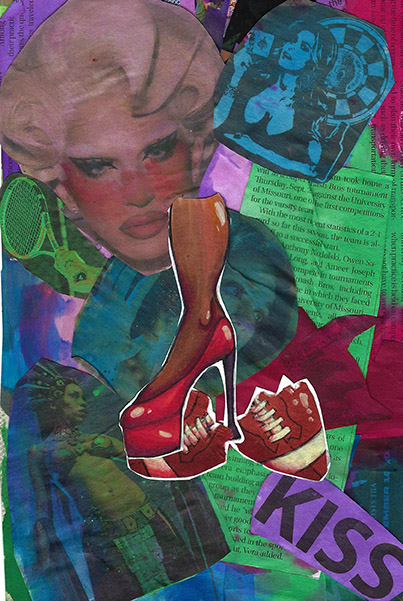OPINION: Deflating the patriarchy: passion vs. fangirling
October 22, 2022
If you see a person who spends money to go to every New Orleans Saints game, has decor for the team in their home, whose happiness depends on the final numbers of the latest Sunday game, you’d probably say this person is a “passionate fan.”
When you see someone who is full of Harry Styles merchandise, spends money to see every concert they possibly can, who’s fully convinced their life changed when Harry’s House dropped, you’d probably see this person as a “crazy fan,” and you most likely even tagged “girl” along with it at the end, without a gender being specified.
The truth is, this is a sexist ideal that is so deeply rooted many people don’t even realize they have it. Sports fans, specifically men, get called passionate for going all out over their teams, yet fans of artists, mostly women, get called “crazy fangirls” for supporting said artist.
It’s ironic, really, since a study published in the Quarterly Journal of Economics found that domestic violence rates rose by 10% whenever a football team experiences an “upset loss” (when a home team was expected to win by four or more points but loses) and this percentage increases during more “important games,” like playoff’s or rivalry. But these fans are just passionate?
It’s sad. These fans are passionate but a woman simply being a fan of an artist makes her “crazy?” Wouldn’t it make sense for these to be reversed? The crazier one of the two should be the one inflicting harm on others, right?
But that isn’t how it’s seen. Women have always been known as the ones who are “crazy” or “over dramatic,” but when men do the exact same thing, it’s okay. It’s idolized, even.
This misogynistic idea isn’t just seen in the passionate vs. fangirling sense. It’s also witnessed with men being able to support a popular team without criticism from others yet women are seen as “basic” for liking certain artists like Taylor Swift or Selena Gomez.
The bottom line is that it’s okay if men do it, but not women. It’s upsetting that this is still the idea. Misogyny may not be an issue that is seen in everyday society anymore but clearly, it is still an issue. It is still a fight. It is still a challenge many women face and when we bite down on these small issues, we can help to solve the bigger ones.
So how can we help solve this issue? What steps can we take?
The first thing that needs to be done is for people to stop referring to normal fans as crazy, period. It isn’t a word to be thrown around on someone who is simply passionate about a topic or person, no matter the gender. It’s harmful to many different people and communities.
Secondly, stop with the criticism of what women enjoy! Let women enjoy what they do without judgment in front of others. It doesn’t matter if it’s “basic” or “boring.”
These issues may seem small to some but they’re important. They’re examples of modern day misogyny in everyday life, and it needs to end now.








